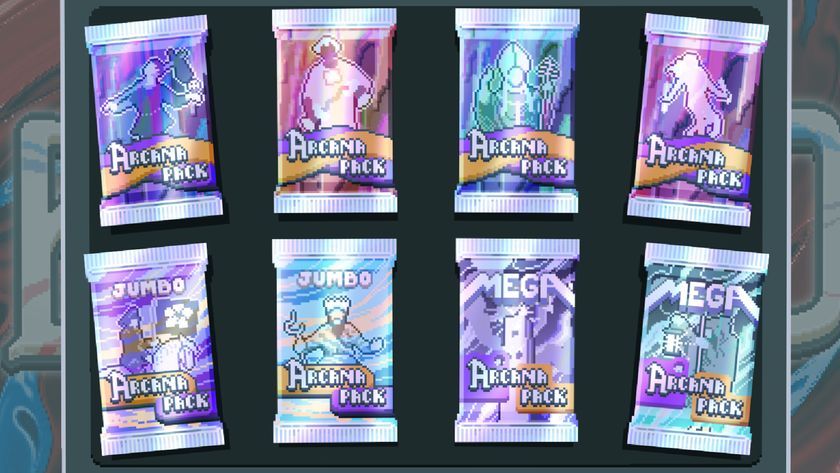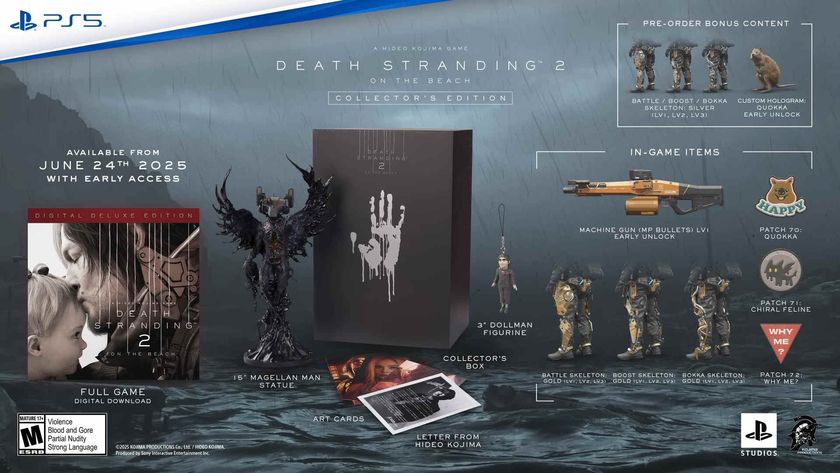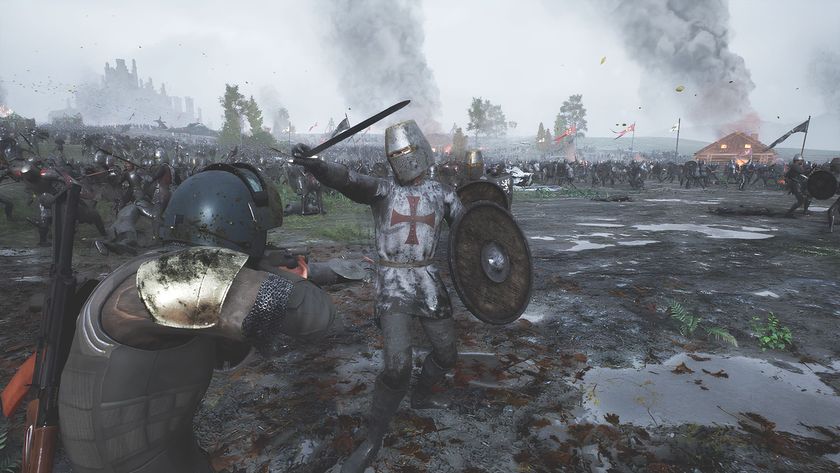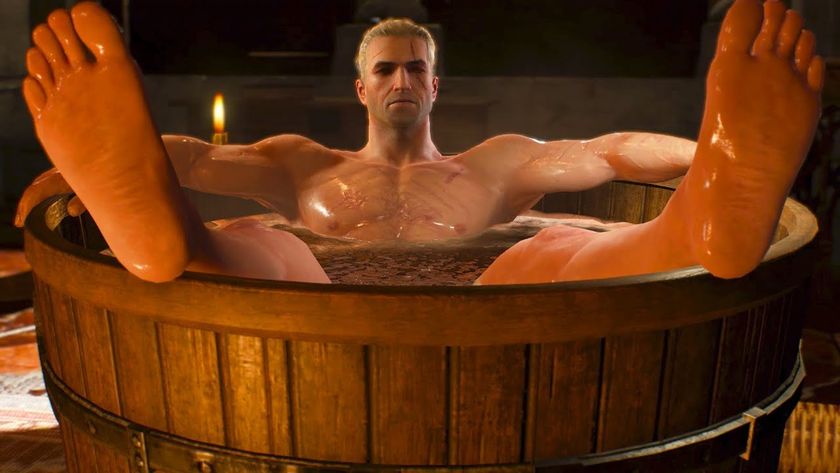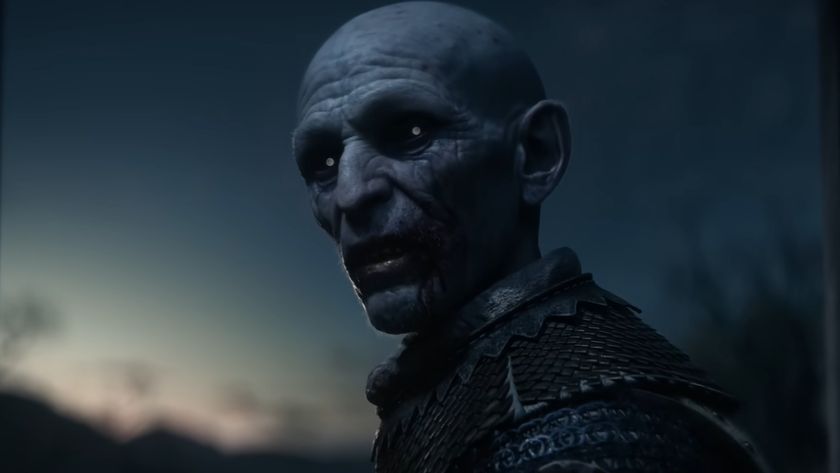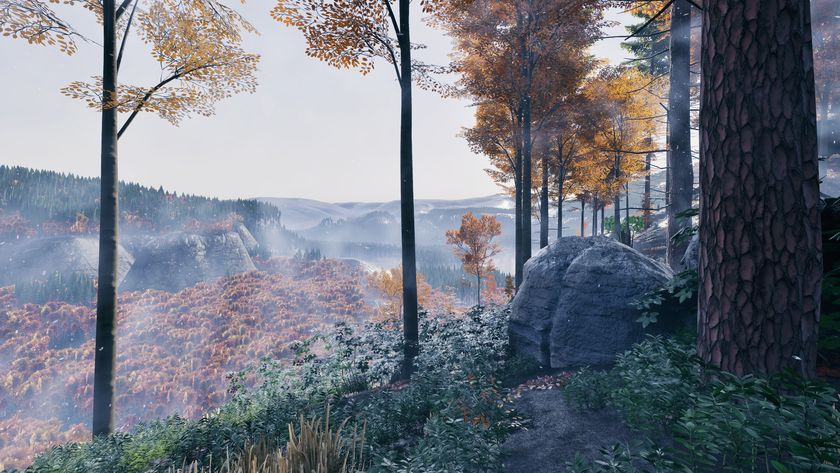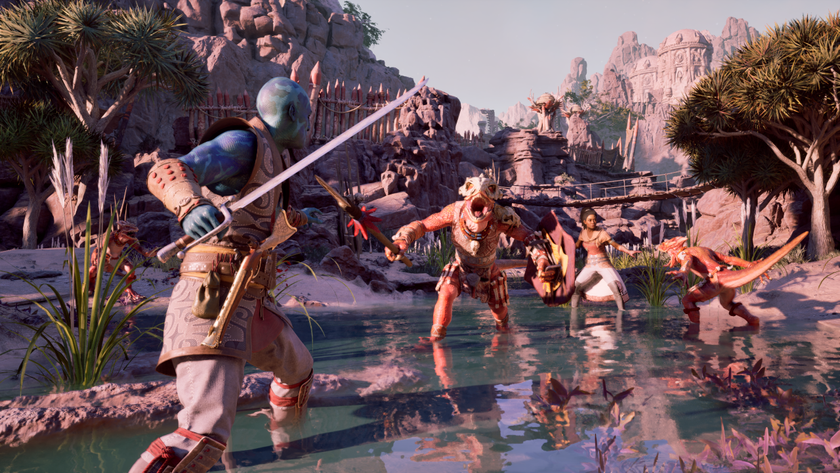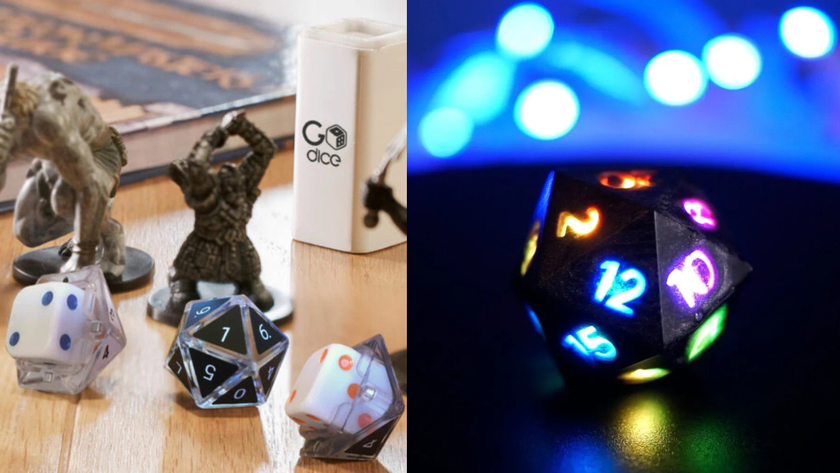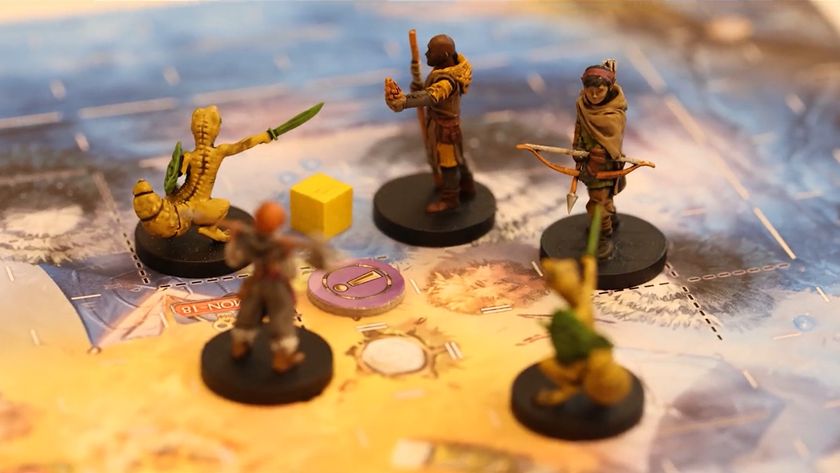Nintendo Badge Arcade represents Nintendo at its most cynical
Despite a late entry into the mobile market, 'free-to-play' isn't a new concept for Nintendo. Games like Stretchmo and Pokemon Shuffle are both what the publisher calls 'free-to-start', where the initial download costs nothing while additional content can be made available for a nominal fee. At their best, these 'free-to-start' games offer unique delivery methods for digital content - like Rusty's Real Deal Baseball, which lets you choose which minigames you want to buy and gives an opportunity to haggle for the final cost. At worst, these games act like other free-to-play games, with energy meters and freemium currency that lets you bypass those meters.
And then there's Nintendo Badge Arcade, a 'free' 3DS game that just made its way to Western digital shores. Don't be fooled by its charming exterior - it's the most cynical cash-grab I've seen in a long time.
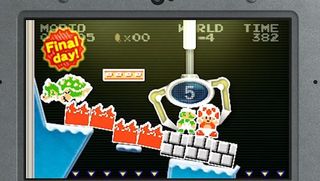
Essentially, Nintendo Badge Arcade is a claw machine - or, as they're known in Japan, a UFO catcher - where you can earn 'badges' themed around a variety of classic and modern Nintendo games, and then use those badges to customize your 3DS' home screen. Most of the badges are purely cosmetic, but some of them will act as alternate icons for the eShop, Mii Creator, camera, and other 3DS applications.
As a concept, it's a neat idea. Nintendo has a deep bench of lovable characters, and it's great that fans have a way to dress up their 3DS with more recognizable mascots like Mario and Yoshi, to more obscure references like Rhythm Heaven, to the completely absurd inclusion of the pixelated culinary delights featured in Tomodachi Life. But the way it's implemented does nothing but exploit empty nostalgia in exchange for the sake of a few dollars.
While Nintendo Badge Arcade might be 'free' in the sense that you can download it without paying anything, it's incredibly stingy with the free credits it hands out. You only get a few complimentary plays when the arcade adds a new set of machines and by checking in with the practice machine each day. You can only practice once a day, but you don't get to keep any of the badges you win from it - all of the badges in this machine look like cardboard cutouts of ones you'll find in the real-money machines. Sometimes you can win a free play or two by checking in, but it's surprisingly common to walk away from the practice machine with absolutely nothing to show for it.
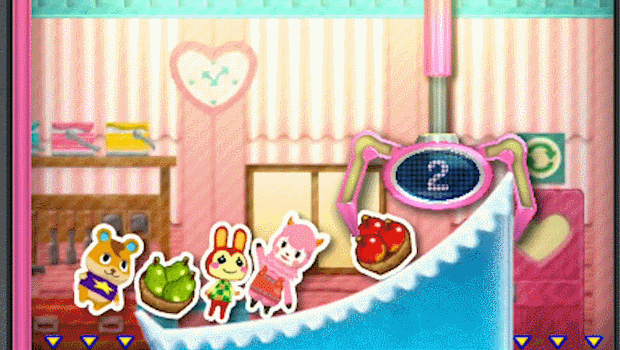
So the only way to reliably get anything out of the arcade requires dropping some cash; $1 equals five plays, but even then you're never guaranteed a prize. This is, after all, a claw machine - a relatively forgiving one, but still a claw machine. There are some strategies you can utilize to maximize your earnings, as large groups of badges can be nudged into the goal with a well-placed crane maneuver, but ultimately it's designed to take your money without giving up anything in return. Many of the 'machines' in the arcade are specifically built with choke points and large groupings of badges that maximize frustration over earnings. I was excited to find a bunch of Rhythm Heaven badges available one day. A few minutes later, I was disgusted with how hard it was to actually win any of them, spending all of my free plays with utter futility.
But that's not even that part that bugs me the most about it. It's how much of the game is designed to get in your head and try to get you to spend, spend, spend. Each claw machine is only available for a few days, and giant warnings appear over each one that let you know just how much time you have left to get that badge you want, lest the machine disappear for an indeterminate amount of time. There are bonus 3DS themes you can only get by spending a few dollars on plays. And the whole while this pink bunny continuously tries to get you to part with your money.
Sign up to the 12DOVE Newsletter
Weekly digests, tales from the communities you love, and more
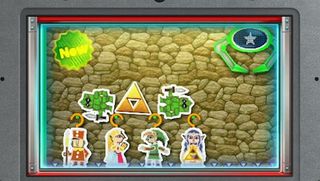
This bunny is evil - a lagomorphic huckster who claims to be your friend while telling you about the latest Nintendo games and claw machines, but is only concerned with padding out his bottom line. He gets "clearance from his boss" for the free plays he hands out. The reason he can't give out more, he claims, is that it's your money that helps keep the arcade open and running - which, of course, is complete bullshit. This isn't a real arcade and he's not a real bunny. Nintendo Badge Arcade is an affectation, a computer program run by a massive Japanese corporation, but all of his language is designed to make you feel like you're patronizing a local mom-and-pop shop, as he appeals to the nostalgia you have for your favorite games.
When you combine all this - the cool badges, the limited-time offers, the distressingly familiar conversations with a digital bunny - it forms an incredibly high-pressure environment that wants nothing more than to snake another dollar or two out of your wallet for a chance at maybe getting another badge to put on your 3DS. I've felt its intoxicating pull, especially after running through all my free plays and ending up so close to the badge I really want. So far I've been able to resist spending actual money on it, but if EarthBound badges show up one day in the arcade? Well, everyone has a breaking point.
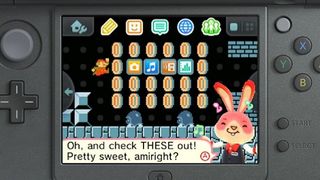
It probably seems like much ado about nothing, considering that it's a free app, and it's just as easy to turn off as it is to spend money on. But it's indicative of a wider problem I've had with Nintendo lately, and it's something that's made itself manifest after my experience dealing with amiibo. Just like amiibo, Nintendo Badge Arcade is a way for Nintendo to profit off of its already existing fan base without really creating anything new. Its biggest fans already have a connection with games like Rhythm Heaven, F-Zero, and its many other titles both popular and niche, and rather than putting in the effort to make new entries or release them in the West, all they have to do is create a couple of digital badges and watch as Nintendo's most dedicated players spend fisftuls of dollars trying to earn them.
Worse still, Nintendo's exploiting the 'catch-'em-all' mentality the publisher has cultivated for decades. Rather than charging for individual badge 'packs' with a finite end cost, Nintendo has turned the experience into a pay-to-play game which allows it to rake in a potentially endless amount of profit.

It's a complete 180-degree turn from Nintendo's original stance on DLC. Former CEO Satoru Iwata remarked in a 2012 Kotaku interview that the Japanese publisher wanted to make DLC where the player could buy with the confidence that they weren't being "cheated" or "deceived", that designing games around DLC "might be good for short-term profit, but it will not serve our mid-term and long-term business developments." And for a while, that was accurate - season passes for Mario Kart 8 and Hyrule Warriors were substantial and well worth the money, expanding on an already worthwhile core product. Experiments like Rusty's Real Deal Baseball and Steel Diver: Sub Wars are distinctly Nintendo approaches to free-to-play gaming. Even Pokemon Shuffle is a fair, if conventional approach to free-to-play that gives players plenty of opportunity to enjoy the game without spending a dime.
But Nintendo Badge Arcade is something else. It's pure, digitized cynicism; a blatant cash-grab that makes use of Nintendo's most beloved properties and characters for a quick buck; a carnival game where the house always wins. Nintendo's always had a cheerful, cartoonish personality that's made it feel like more than a faceless corporation, but Nintendo Badge Arcade shows the company at its most soulless. And even the world's friendliest bunny can't hide that.
